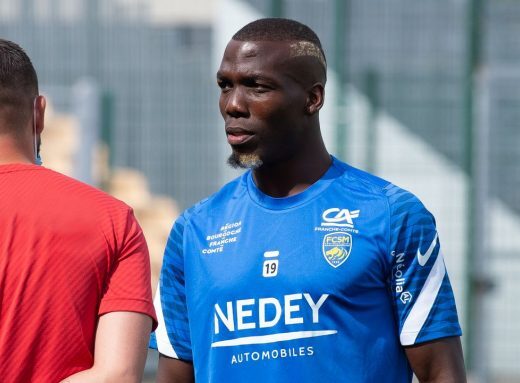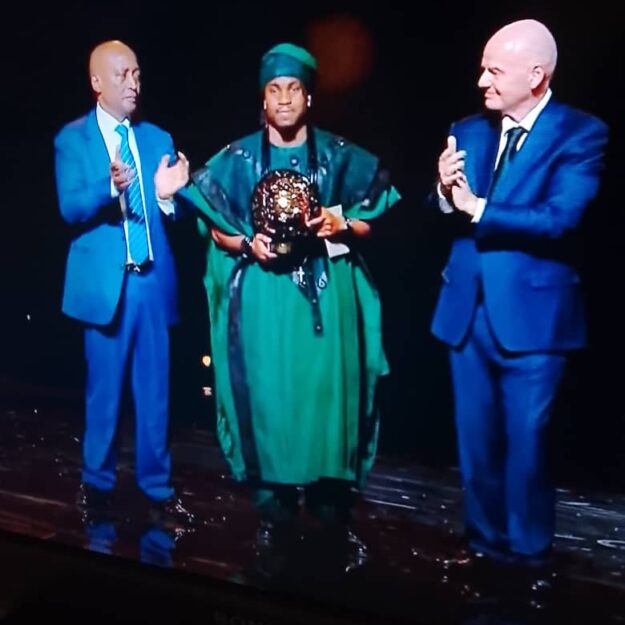
The plan by Lagos State Governor Babajide Sanwo-Olu to unveil a new policy for okada operators is generating mixed reactions from experts. ADEYINKA ADERIBIGBE reports.
For many reasons, it seemed the only exciting news for Lagosians, as Governor Babajide Sanwo-Olu reeled out his achievements last Friday, was his willingness to enforce the restriction law on commercial motorcyclists, popularly known as Okada riders.
At a ceremony marking the first 100 days of his administration at Agidingbi, Ikeja, Sanwo-Olu said the review became necessary to enable the government control commercial motor cycle operations and assure residents of safety.
“It has become imperative for us as a government to map out new policies that would guide how okada riders operate in Lagos State. This would stem the tide of accidents and indiscriminate use of okada on Lagos roads,” Sanwo-Olu had said.
The Ban/ Restriction
Since the Lagos State Traffic Law came into effect on August 22, 2012, Okada operators have operated as outlaws.
Citing safety issues, the government had embarked on massive clampdown, which has over the years, impounded eight million motor cycles and sent them to the state’s scrap yards.
Section 3 (1) of the law had restricted Okada operators from 475 roads, highways and bridges. Though the government never totally banned them from all her roads, it restricted motorcycles with lower than 200cc to the inner city roads.
Factors ranging from dangerous road attitudes, armed robbery, stealing to flouting of traffic laws were some of the reasons for the restriction.
But for a megacity like Lagos, what constitutes inner city roads? Though the annexure of the law was clear on the roads on which commercial motorcycles were banned, the lacuna and ignorance soon gave way to extortion by security operatives who go on random raiding just to “get some quick dough”.
Some Okada riders accused policemen of harassment even when they plied routes not listed by the law. “Even on the inside roads, dem dey catch us,” said John Abaji said.
But was there a compelling need to take the okada operators like Abaji off major roads? Indicators showed several reasons.
At the Igbobi Orthopedic Hospital, a ward, prior to 2012, was dedicated to okada accident victims. Same goes for the government hospitals as well as private and trado-medical facilities, which are usually crammed.
The Lagos State Traffic Management Authority (LASTMA) statistics as at 2012 showed that no fewer than 107 persons died of okada accidents every day, while 512 persons sustained various injuries. According to the statistics, 442 okada accidents were recorded daily in the state in 2012 alone.
Insecurity compounded the growing accident ratio. The then Lagos State Police Commissioner, Umaru Manko, accused Okada operators of robbery. For him, it was either they are the criminals or they collude with criminals for quick get-away.
The police had profiled Okada as the single most dangerous phenomenon in the state then. Security reports showed that most cases of mugging and burgling are carried out with okada.
The restriction brought sanity on these two major areas, as a drastic reduction in accidents, injuries and deaths as well as cases of their involvement in crime has been recorded year on year.
The mop up itself has sprung two schools of thought in the transportation sector. While some scholars agreed with the government that okada operation, being a circumstantial phenomenon, has no place in the state’s transportation architecture, another school of thought canvassed their recognition.
According to the first school, to which the immediate past Permanent Secretary of the Ministry of Transportation Dr Taiwo Salaam belongs, the state had no record of Okada as a form of transportation business until the dawn of the Fourth Republic. They argued that the operators must be muzzled by the force of law and replaced by public buses.
The second school of thought, however, insisted that the okada operators must continued to be accommodated in transportation planning by the government.
They argued that denying their existence or their activity and planning a policy without them is akin to the government hiding its head in sand like the ostrich.
While for seven years the first school of thought seemed to have its way and hold sway, continued degeneration of state’s infrastructure have remained the single most potent trigger fueling its continued existence.
The worsening and road crisis inherited by Sanwo-Olu, not only nullified arguments to stamp out Okada operators, it made it the preferred option by commuters desirous of moving about in the state.
Nothing made the case for a revisit of the law more compelling than the arrest, penultimate Friday, of a truck load of 135 youths and 45 Okada by the Police at Agege. The truck from Jigawa, had brought the men into Lagos to “eke out a living on okada business”.
New operators
But even more significant is that the state’s transportation ecosystem has significant transformation since 2012.
While motorcycles with engine capacity of about 100 or lower held sway up until 2012, a new set of entrepreneurs driven by technology, have taken the sub-sector by storm, setting up tech-driven hailing app companies round okada operations.
From 2015, when Adetayo Bamiduro and Chinedu Azodoh co-founded Max.ng, and pushed MaxOkada, they have revolutionised okada transportation business, opening the eyes of youths to the huge potential in a sub-sector written off by the state.
In an interview with, Azodoh disclosed that within three and a half years, Maxokada has completed one million trips and emerged as the leading logistics partner with Jumia, Nigeria’s leading online retail outlet.
The Maxokada success story has also berthed several operators, such as Gokada, the latest being ORide, all promising commuters an opportunity to reduce their travel time by half.
Azodoh said the operators were not breaking any laws. For him, Maxokada should be commended for taking hundreds of youths out of poverty. On the average, its riders receive between N50,000 and N80,000 monthly, and testimonies abound of how many were finding a rhythm by opting to operate their okada.
He stated the company invests on top of the rate engines and crash helmets, with none of its machines being anything lower than 200cc. It embarks on aggressive training and re-training to drum its no-accident policy down the hearts of operators. Overall, Anazodoh said okada hailing firms had contributed to unlocking the economy that was almost prostrate as many roads became impassable in the last five years.
Anazodoh ’s position was re-echoed by Gokada, which only in July, at a meeting with Sanwo-Olu had expressed its readiness to invest in the state’s waterways.
Dean of the Lagos State University School of Transportation (LASU-SOT) Prof Samuel Odewunmi said transportation planning would continue to fail in the state if the government refused to acknowledge the role okada operators, especially the tech-driven ones, were playing in the business of transportation.
Odewunmi said though the inclusion of Okadas as a recognised means of transportation may look demeaning, acknowledging their role is admitting the problem from where planning its mitigation and eradication becomes realisable.
He said study has showed that okada has become ubiquitous as a means of transportation that no family in Lagos can ever say he has never ridden one before.
According to him, okada, especially now that we have a more modern and comfortable ones operated by those who saw it as a business, would continue to throve if the roads remain deplorable.
He praised the Transportation Commissioner Dr Frederic Oladeinde, for returning the okada issue to the round table. If properly harnessed, he said, the subsector could be a money spinner.
Closing eyes to reality
Oladeinde said: “You cannot close your eyes to them. It is only a government that is not ready to govern that would say it won’t recognise them. Whether you recognise them or not, they are here and will continue to exist because people are patronising them massively.”
He said the government was right in going back to the drawing board to rework the traffic law and to come up with an outcome that will be binding on all stakeholders be it okada, bus, truck or private or other road users.
“We need, for instance, to critically study the okada system, we need to understand it to enable us plan adequately. Understanding them will reveal why they continued to be patronized and how we can squeeze them out. For example, nobody will ply okada when you have an air-conditioned bus. It is because all other things have failed that we have them in operation. I think it is thriving because it is the last option for our people. A student going for exams will hop on okada if he is stuck in traffic. If he is to obey you and avoid okada, what options does he have? What magic would take him closer to the exam hall?
Mathew Akinola, a planner said, it is ironic that a government that impounds okada is not only according okada unions recognition, but also collects revenue from them.
Akinola, who praised the governor for his “willingness to reappraise the okada issue”, said the first thing the government needed to do was to know the quantum of the problem, i.e. the number of okada operators.
He, like Odewunmi, believes that knowing them would help weed out faceless operators. “One of the several questions transportation planners must answer in coming up with new regulations is, ‘how many are they?’ Part of the regulations should be to ensure that operators are registered with their unions. This will ensure that you sanitise them and prevent the various abuses associated with their operation i.e., robbery, kidnapping, accidents etc,” he said.
But Odewunmi urged Lagosians not to be too hasty, until they do not know what the government is up to. “The devil is in the details,” he said, so we must interrogate to know what the government wants to do.
He counselled against the civil servants turning the exercise into another money-making exercise. The idea is to help sanitise the sector. The idea is to regulate the operators.
“To do this, you must ensure they are carried along. That way you not only get their buy-in, but also be assured of their total compliance. That is the only way they would also be able to pay any fee charged by the government, believing that the policy is in their own interest,” Odewunmi stressed.
You may be interested

Arteta Provides Injury Updates On Five Arsenal Players Ahead Palace Clash
Webby - December 20, 2024Arsenal manager Mikel Arteta has revealed that Declan Rice and Riccardo Calafiori are both available to be in the Gunners…

Carabao Cup: Spurs Edge Man United In Seven-Goal Thriller To Reach Semi-finals
Webby - December 19, 2024Tottenham Hotspur edged Manchester United 4-3 in the quarter-finals of the Carabao Cup on Thursday.Spurs raced to a 3-0 lead…

Pogba’s Brother Sentenced To Three Years In Prison
Webby - December 19, 2024Mathias Pogba, brother of former Manchester United star Paul Pogba, was sentenced Thursday by a Paris criminal court to three…
















![American Pastor, David Wilson Seen Eating The Box Of Woman Who Isn’t His Wife [Video]](https://onlinenigeria.com/wp-content/uploads/2019/10/american-pastor-david-wilson-seen-eating-the-box-of-woman-who-isnt-his-wife-video-150x150.jpg)









